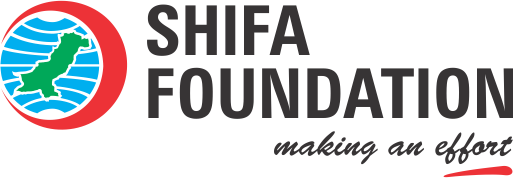Strategies for Cancer Prevention
We know that cancer can be caused for various reasons. Some are uncontrollable, but others can be managed to prevent the disease. An inadequate diet is responsible for between one third and half of all cancers and up to 70% of digestive diseases. And the opposite is also true: cancer prevention is possible with a diet that positively affects the cellular and inflammatory processes related to its appearance. An adequate diet and sufficient physical activity would reduce the incidence of cancer by more than 40%. If we add the effect of tobacco, the decrease of all cancers would be around 80%.
Cancer Prevention in 9 Easy Steps?
The appearance of some malignant cells is inevitable, but they do not become a cancer if the organism is balanced. The key is to act on the potential tumour cells and on those that surround them, which make up the tumour microenvironment. It is about monitoring nine factors that influence the development of the disease.
1. Reduce Foods with A High Glycaemic Index
Cancer prevention and treatment of all types of tumours begins by decreasing the consumption of foods with a high glycaemic index. This translates the ability of foods to rapidly increase blood sugar levels and, consequently, insulin. The higher the sugar rate, the more inflammation and the easier the development of tumours. Replace white sugar, bread, pasta and rice for their whole versions and consume them in moderate quantities. By increasing the intake of vegetables and legumes, foods rich in fibre, the rate of sugar is regulated.
2. Prevent The Proliferation of Tumour Cells
We can create conditions so that the tumour cells do not multiply. We know that inflammation, acidity and oxygen deficiency favour multiplication of these cells and that certain foods are beneficial at those levels. Here are some food items that can be consumed for cancer prevention:
-
- Cruciferae: (all varieties of cabbage), dark green leaves and garlic are the foods that have proven a greater inhibitory effect on carcinogenic proliferation.
-
- Vegetables rich in carotenes, such as carrot, sweet potato, tomato, persimmon and apricot, contain pro-vitamin A and, in some cases, lycopene and substances that inhibit the division of harmful cells.
-
- The isoflavones in soy (genistein and daidzein, among others) block the stimulation of cancer cells by hormones such as estrogen and testosterone. These isoflavones are found in tofu, tempeh, miso, and bean sprouts. The combination of green tea, soy and turmeric is especially interesting when adding effects on different mechanisms related to cell proliferation.
3. Alkalize Your Diet
Dr Otto Warburg discovered in 1931 that cancer cells develop best in conditions of low oxygen availability. This occurs in conditions of acidity. In alkalinity, cells breathe better and cancer cells have a hard time surviving. Although the body has resources to regulate its degree of acidity, it is advisable to avoid excess acidifying foods and prefer alkalis for cancer prevention. The alkaline diet is based on fruits and vegetables, especially fresh grapes, almonds, beets, carrots, celery, melons, grapefruit, cabbage, tomatoes and apples.
4. Use Antioxidants
Antioxidants neutralize free radicals, very reactive chemical compounds that damage cells, including their genetic material, which can transform them into carcinogens.
-
- Green tea contains a large amount of polyphenols, such as catechins with antioxidant and detoxifying properties that enhance the effectiveness of radiotherapy.
-
- Red fruits such as strawberries, raspberries or pomegranates, have ellagic acid and polyphenols. They are also capable of killing diseased cells hence making the treatment easy.
-
- Dark chocolate with at least 70% cocoa, is an antioxidant, thanks to its levels of proanthocyanidins and polyphenom, that slow down tumour growth. So if you are fond of dark chocolates, you are on your way to cancer prevention.
5. Eliminate Already Damaged Cells
Apoptosis is the technical word that defines a type of death triggered by genetically determined cellular signals. This cancer prevention mechanism, which is also known as suicide or programmed cell death, is a body’s resource for eliminating damaged cells. Vitamin D3 is essential for certain genes to trigger the process of apoptosis on tumour cells. It has been proven that low levels of this vitamin are related to the appearance of different tumours. The main source of vitamin D is the sun, since the skin synthesizes it when it receives its radiations. In food, it is found in mushrooms especially in sun-dried ones. Cabbages, rich in isothiocyanates, the black grapes with resveratrol and turmeric have pro-optic activity and prove effective for cancer prevention. Herbs such as rosemary, thyme, oregano, basil and mint have terpenes of similar effect.

6. Cut Off the Tumour’s Blood Supply
Angiogenesis is the process by which the tumour is provided with blood vessels that feed it. A molecule of green tea called epigallocatechin-3-gallate inhibits it. For the effect to take place it is advisable to drink more than 2 cups a day. Some compounds present in berries show the same property. They act at the molecular level in a similar way to chemotherapeutic agents, but without undesirable side effects. Peppermint, thyme, marjoram, oregano, basil and rosemary are rich in terpenes with anti-angiogenic effects and are good allies during chemotherapy treatments and also for cancer prevention.
The proper functioning of the organism depends on the balanced intake of omega-3 and omega-6 fatty acids. Omega-6 predominates, which translates into inflammation and a tendency to develop different diseases. It is essential to increase the intake of foods rich in omega-3 because they contribute to the correct development of the cells and prevention of cancer. Omega-3s reduce the number and size of precancerous polyps, reduce inflammation and increase the response to chemotherapy treatment. Omega-3s are obtained from plant foods such as flax, nuts and chia seeds, which are rich in the alpha-linolenic acid precursor.
8. Seek Help from The Microbiota
Our intestine is inhibited by 100 billion bacteria weighing between 1 and 2 kilos. They constitute a real living organ with which the human being maintains a symbiotic relationship. These microorganisms increase the absorption of nutrients and stimulate immunity. This shows that your body is itself armed for cancer prevention. Soy yogurts, water kefir, fermented cabbage, kimchi or kombucha tea provide live microorganisms such as bifidobacteria. These microorganisms prevent cancer and contribute to its remission. Plants rich in inulin and other types of fibre feed the beneficial bacteria and produce changes in the composition or activity of the microbiota. These foods include garlic, onion, tomato, asparagus, artichoke, leek and banana.
9. Detoxify from Time to Time
The body needs to eliminate toxic substances that it has been exposed to – with food, respiration or through the skin – or that have occurred during metabolic processes, and that promote inflammation or are directly carcinogenic. Detoxification is significantly helpful in cancer prevention. The process consists of minimizing or completely avoiding the intake of sugar and foods based on refined flours, dairy products and protein of animal origin. The depurative diets based on fruits, juices, broths and vegetables such as artichoke and thistle, and fasts are the ideal complement of an anticancer diet. It is also important to stay hydrated and moderate your salt intake for the prevention of cancer.

Donate to Shifa Cancer Hope
Shifa Foundation being a non-profit organization is working for the betterment of underprivileged communities through healthcare. Shifa Foundation provides cancer treatment to needy and deserving patients through its Shifa Cancer Hope (SCH) initiative. Through the help and donation of its generous donors Shifa Foundation can treat more deserving cancer patients. Help and donate to Shifa Foundation and contribute towards the war against cancer.
DONATE VIA BANK ACCOUNT
Bank Name: Al Baraka Bank
Account Title: Shifa Foundation – HAP
Account: 01101-55388-059
Bank Name: Faysal Bank
Account Title: Shifa Foundation
Account: 0169150900218363
Zakat Account
Bank Name: U MICRO FINANCE BANK
Account Title: Shifa Foundation
IBAN: PK93UMBL0051000062540066 Branch Code: 510 (Rawalpindi Branch)
DONATION METHODS
- 2025 Shifa Foundation All Rights Reserved.

